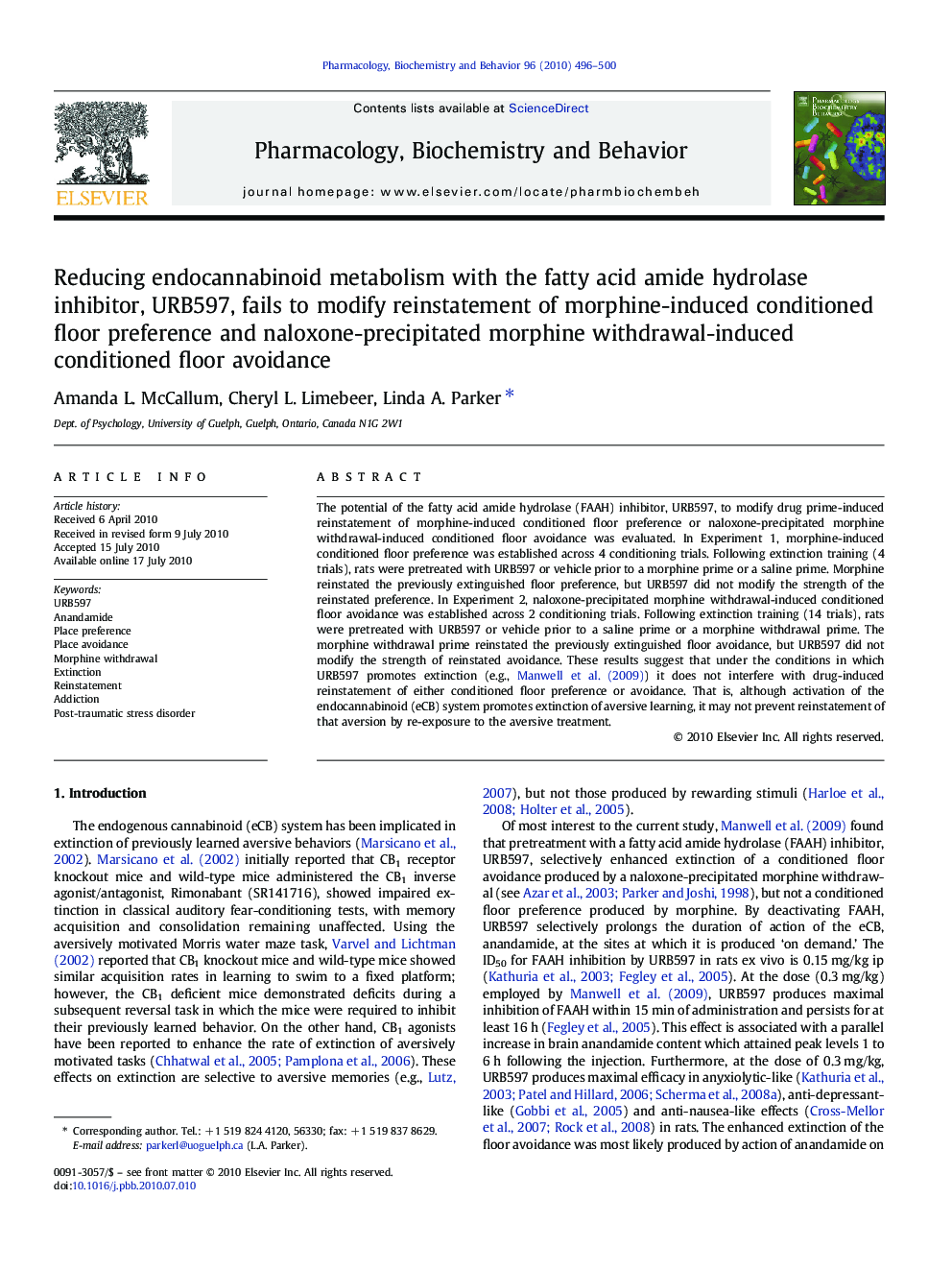| کد مقاله | کد نشریه | سال انتشار | مقاله انگلیسی | نسخه تمام متن |
|---|---|---|---|---|
| 2013378 | 1067110 | 2010 | 5 صفحه PDF | دانلود رایگان |

The potential of the fatty acid amide hydrolase (FAAH) inhibitor, URB597, to modify drug prime-induced reinstatement of morphine-induced conditioned floor preference or naloxone-precipitated morphine withdrawal-induced conditioned floor avoidance was evaluated. In Experiment 1, morphine-induced conditioned floor preference was established across 4 conditioning trials. Following extinction training (4 trials), rats were pretreated with URB597 or vehicle prior to a morphine prime or a saline prime. Morphine reinstated the previously extinguished floor preference, but URB597 did not modify the strength of the reinstated preference. In Experiment 2, naloxone-precipitated morphine withdrawal-induced conditioned floor avoidance was established across 2 conditioning trials. Following extinction training (14 trials), rats were pretreated with URB597 or vehicle prior to a saline prime or a morphine withdrawal prime. The morphine withdrawal prime reinstated the previously extinguished floor avoidance, but URB597 did not modify the strength of reinstated avoidance. These results suggest that under the conditions in which URB597 promotes extinction (e.g., Manwell et al. (2009)) it does not interfere with drug-induced reinstatement of either conditioned floor preference or avoidance. That is, although activation of the endocannabinoid (eCB) system promotes extinction of aversive learning, it may not prevent reinstatement of that aversion by re-exposure to the aversive treatment.
Research Highlights
► Morphine withdrawal produces profound conditioned place avoidance.
► Activation of the eCB system promotes extinction of aversive learning.
► But, activation of the eCB system did not prevent relapse of either rewarding or aversive memories.
Journal: Pharmacology Biochemistry and Behavior - Volume 96, Issue 4, October 2010, Pages 496–500